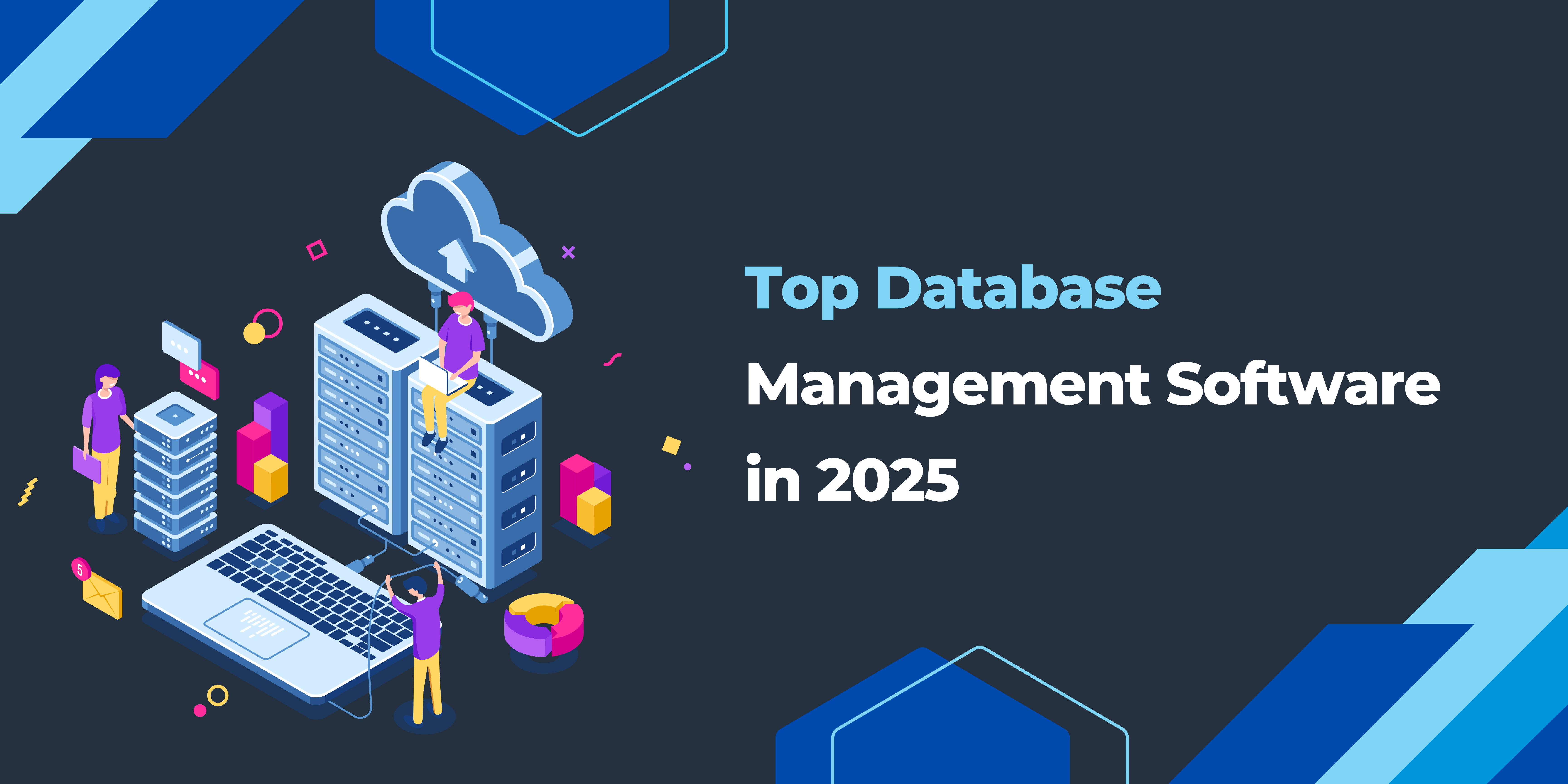As the tech landscape evolves, managing databases effectively has become more crucial than ever. In 2025, both enterprises and startups are seeking robust database management software to handle large amounts of data securely and efficiently. Here’s a look at the top database management software that’s leading the way in 2025.
1. Microsoft SQL Server
Microsoft SQL Server continues to be one of the most reliable database management systems. Known for its powerful performance, robust security features, and easy integration with Microsoft’s ecosystem, SQL Server is a top choice for enterprises managing high-volume data.
Key Features:
- Advanced security measures like encryption and auditing.
- Excellent for structured data management.
- Real-time data analytics and AI integration.
2. PostgreSQL
PostgreSQL is renowned for its open-source nature and flexibility. This system supports both SQL and NoSQL formats, making it ideal for developers who need a scalable, customizable solution.
Key Features:
- Strong support for complex queries and JSON data.
- Great for both structured and unstructured data.
- Large community and extensive plugin options.
3. MongoDB
MongoDB, a NoSQL database, continues to dominate for businesses dealing with unstructured or semi-structured data. It is highly scalable, making it popular for applications that need to handle large volumes of real-time data.
Key Features:
- Document-based storage for greater flexibility.
- Horizontal scaling to support high traffic.
- Ideal for cloud-based applications.
4. Oracle Database
Oracle is well-known for its performance in managing large databases for big enterprises. It offers cutting-edge features in cloud computing, artificial intelligence, and analytics.
Key Features:
- High-level security and data protection.
- Best suited for large-scale enterprise applications.
- Excellent support for hybrid and multi-cloud environments.
5. Amazon Aurora
Built for the cloud, Amazon Aurora is a fully managed database engine that provides performance and availability comparable to traditional databases, but with the simplicity of cloud-based infrastructure.
Key Features:
- Fully managed by AWS, allowing easy scaling.
- Auto-backups and failover capabilities.
- High availability and cost-effective for cloud workloads.
6. MySQL
MySQL remains one of the most popular databases for small to medium-sized businesses. Its open-source model makes it a cost-effective choice, and its widespread usage ensures strong community support.
Key Features:
- Perfect for web applications and startups.
- Easy integration with PHP and other development frameworks.
- Extensive support and large community.
7. Redis
Redis, known for its speed and performance, is a NoSQL, in-memory database that excels at managing real-time applications, such as gaming, messaging, and caching.
Key Features:
- Lightning-fast data access.
- Ideal for real-time applications like chat, gaming, and IoT.
- Strong support for distributed systems.
8. Google BigQuery
Google BigQuery is gaining traction for its ability to handle massive datasets using serverless, highly scalable cloud infrastructure. It is perfect for businesses with heavy data analytics needs.
Key Features:
- Fully managed data warehouse for large datasets.
- High-performance analytics with built-in machine learning.
- Serverless architecture for easy scaling.
Conclusion:
The database management landscape in 2025 offers a wide range of options, from traditional SQL-based systems like Microsoft SQL Server and Oracle Database, to flexible NoSQL solutions like MongoDB and Redis, and cloud-native options like Amazon Aurora and Google BigQuery. Whether you’re managing structured or unstructured data, optimizing for performance, or aiming for cloud scalability, there’s a database management system suited for every need in 2025.
Each software has unique features, so it’s essential to choose the one that aligns with your business goals, scalability needs, and budget.

